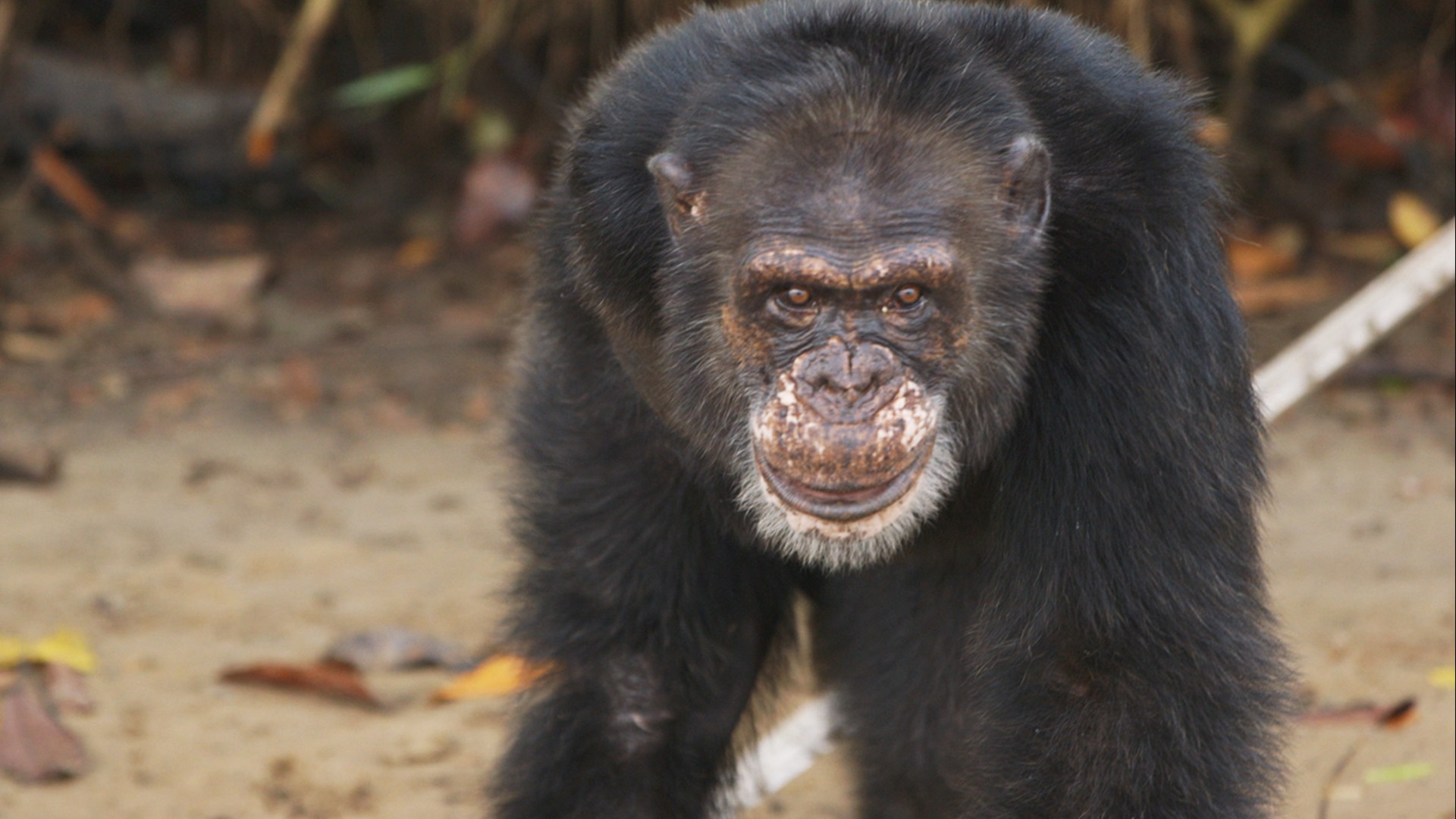Image: Jenny Desmond/HSUS
Dozens of chimpanzees that were abandoned on a string of islands in Liberia finally have a future.The New York Blood Center, the organization that had used the chimps for research before abandoning them in 2015—a story Motherboard broke—has partnered with the Humane Society of the United States to ensure the apes' long-term care."I am delighted that these two organizations have agreed on a path forward that provides lifetime care for these long-lived and social creatures," Wayne Pacelle, president and CEO of The HSUS, said in a press release.The NYBC brought the chimps (a mix of wild-captured individuals and former pets) to a medical research center in Liberia in 1975. The research conducted there led to the development of a hepatitis B vaccine and a sterilization method used to ensure safe blood transfusions. But after two civil wars and domestic unrest, the NYBC decided to close down the lab in 2005.The chimps were moved to a nearby string of island where they would live out their "retirement." But there was no natural food source and no fresh water on the island so, for ten years, the blood center paid local workers to feed and water the chimps. In 2015, the NYBC suddenly pulled the plug, abandoning the chimps with no food, no water, and no hope of survival."If nothing happens, the chimps will perish," Betsy Brotman, the former director of the NYBC's research facility, told me at the time. "All of them."The HSUS began fundraising to obtain funds for temporary care of the chimps, managing to gather hundreds of thousands of dollars in donations to keep the chimps from starving. But since the NYBC was the organization that brought, and abandoned, the apes on the island, animal rights groups pressured the NYBC to step up and take responsibility for the animals' lives.
Advertisement
The NYBC announced Tuesday it will provide $6 million in funding to the HSUS to help establish lifetime care for the chimps. It's not the full amount needed for the care of the chimps, which can live up to 50 years, but it establishes a significant base, which HSUS says it can round out with donations."The HSUS will work with its members and others to find the resources to make sure these chimpanzees know only human kindness for the remainder of their lives," Pacelle said.Read more: These Chimps Helped Us Find a Hepatitis Vaccine. Now They've Been Left to Die

